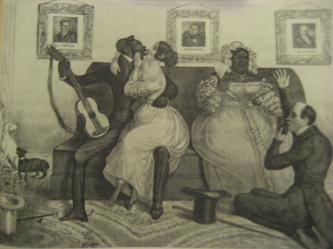
Researched and Curated By Rev. Dr. Philippe SHOCK Matthews
(Black Trauma and Mental Health Specialist | Prompt Eng | GPT Dev | Research Scientist | Africana Phenomenologist)
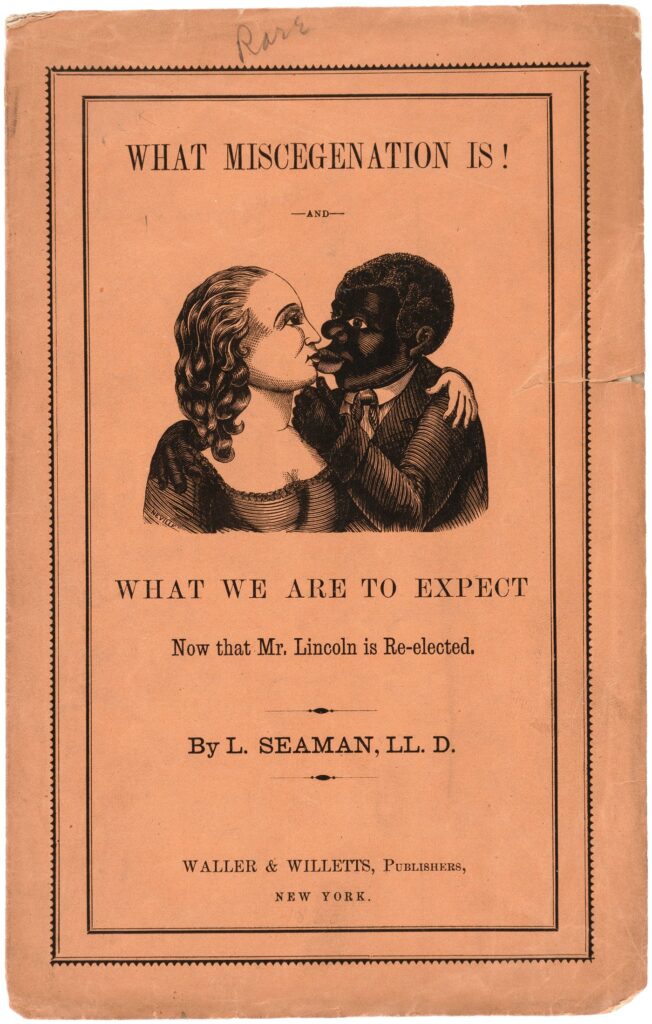
Anti-miscegenation laws, which prohibited interracial marriage and sometimes interracial sexual relations, were first introduced in the United States during the colonial era.[2]
The earliest known anti-miscegenation law was enacted in Virginia in 1691, which prohibited interracial marriages between whites and non-whites.[3][5] Other colonies and later states followed suit, with many enacting similar laws in the 17th and 18th centuries to maintain the racial caste system and the institution of slavery.[2]
Some key dates for the introduction of anti-miscegenation laws in various states:
– Massachusetts (1705)[5]
– Pennsylvania (1725)[5]
– North Carolina (1715)[5]
– South Carolina (1717)[5]
– Georgia (1750)[5]
– Delaware (1721)[5]
– Tennessee (1741)[5]
– Arkansas (1838)[2]
– Texas (1837)[5]
So while a few states like Pennsylvania and Massachusetts had anti-miscegenation laws as early as the early 1700s, the majority of states enacted such laws in the late 18th and early-to-mid 19th centuries to reinforce racial segregation and white supremacy.[2][3][5]
Citations:
[1] https://en.wikipedia.org/wiki/Anti-miscegenation_laws_in_the_United_States
[2] https://encyclopediaofarkansas.net/entries/anti-miscegenation-laws-3508/
[4] https://scholarworks.lib.csusb.edu/cgi/viewcontent.cgi?article=1284&context=history-in-the-making
[5] https://www.webpages.uidaho.edu/engl_258/lecture%20notes/american_antimiscegenation.htm
Anti-Miscegenation Laws Had Several Detrimental Effects On Black Women:

1. They encouraged the sexual exploitation of black women by white men. Since interracial marriages were illegal, any sexual relations between white men and black women were considered illicit and the children born from such unions were deemed illegitimate slaves following the condition of their mothers.[1] This legitimized white men’s sexual advances towards black women and implied their inferiority to white women.[1]
2. They perpetuated negative stereotypes about black women’s sexuality. Black women were portrayed as promiscuous, exotic, and passionate, in contrast to the ideals of purity and chastity expected of white women.[1] Their high birth rates and revealing clothing (a consequence of being property) were used to justify these negative stereotypes.[1]
3. They denied black women the legal protections and social status associated with marriage. While white men could force themselves on slave women with impunity, black women had no recourse to the law.[5] Black prostitutes also earned less than their white counterparts due to these racist attitudes.[5]
4. They reinforced the racial hierarchy and subjugation of black women. Anti-miscegenation laws were part of the larger system of racial oppression that denied basic rights and humanity to black women.[1][3]
In essence, anti-miscegenation laws contributed to the dehumanization, exploitation, and subordinate status of black women by denying them legal protections, perpetuating racist stereotypes, and enabling sexual coercion by white men.[1][3][5]
Citations:
[1] https://repository.library.georgetown.edu/handle/10822/1051098
[2] https://scholarworks.lib.csusb.edu/cgi/viewcontent.cgi?article=1284&context=history-in-the-making
[3] https://encyclopediaofarkansas.net/entries/anti-miscegenation-laws-3508/
[4] https://en.wikipedia.org/wiki/Anti-miscegenation_laws_in_the_United_States
[5] https://scholarlycommons.law.hofstra.edu/cgi/viewcontent.cgi?article=2608&context=hlr
What Were The Psychological Effects Of Anti-Miscegenation Laws On Black Women?
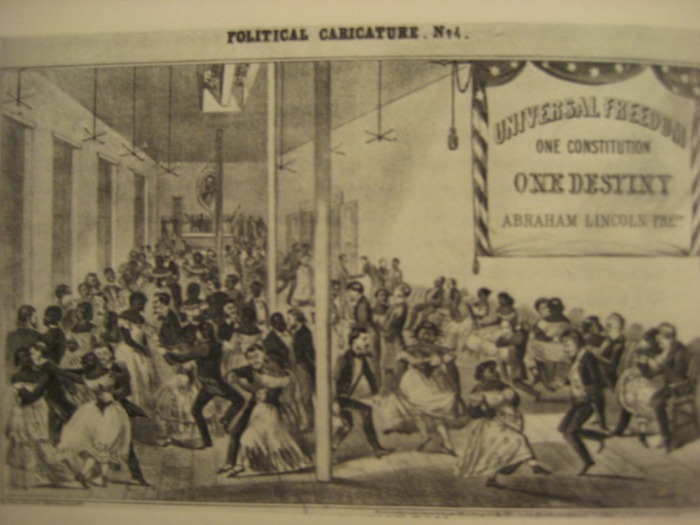
Anti-miscegenation laws had profound psychological effects on black women, contributing to a range of mental health issues and emotional distress. Here are some key points based on the provided sources:
1. Chronic Stress and Mental Health:
– Racial discrimination, including the enforcement of anti-miscegenation laws, acted as both chronic and acute stressors that negatively impacted the mental health of African Americans. This stress was particularly acute for black women, who faced both racial and gender discrimination. Studies have shown that such discrimination is associated with elevated levels of psychological distress, depressive symptoms, anxiety, and lower life satisfaction[1][2].
2. Identity and Self-Perception:
– Anti-miscegenation laws reinforced negative stereotypes about black women, portraying them as inferior and hypersexual compared to white women. This societal perception could lead to internalized racism and a diminished sense of self-worth among black women[4][7]. The constant societal message that they were undesirable and inferior could severely impact their self-esteem and identity.
3. Social Isolation and Stigma:
– Black women in interracial relationships often faced social rejection and isolation from both black and white communities. This dual rejection could lead to feelings of loneliness and alienation, further exacerbating mental health issues[3][7]. The stigma associated with interracial relationships meant that black women had to navigate a complex social landscape, often without adequate support.
4. Emotional and Psychological Abuse:
– The legal and social prohibitions against interracial relationships often resulted in black women being subjected to emotional and psychological abuse. They were frequently seen as mere objects of sexual desire rather than as equal partners, which could lead to long-term emotional trauma[5][6]. The lack of legal protection and societal support made it difficult for black women to seek justice or support.
5. Impact on Family and Community Dynamics:
– The enforcement of anti-miscegenation laws disrupted family and community dynamics. Black women in interracial relationships often faced pressure and disapproval from their own families and communities, which could lead to strained relationships and additional emotional stress[3][7]. The fear of social ostracism and the potential impact on their children added another layer of psychological burden.
In summary, anti-miscegenation laws had severe psychological effects on black women, contributing to chronic stress, identity issues, social isolation, emotional abuse, and disrupted family dynamics. These laws not only reinforced racial and gender hierarchies but also inflicted deep emotional and psychological wounds on black women.
Citations:
[1] https://www.ncbi.nlm.nih.gov/pmc/articles/PMC4236835/
[2] https://www.ncbi.nlm.nih.gov/pmc/articles/PMC10808380/
[3] https://nsuworks.nova.edu/cgi/viewcontent.cgi?article=1177&context=shss_dcar_etd
[4] https://journals.sagepub.com/doi/10.1177/2158244012455179
[5] https://scholarlycommons.law.hofstra.edu/cgi/viewcontent.cgi?article=2608&context=hlr
[6] https://scholarworks.lib.csusb.edu/cgi/viewcontent.cgi?article=1284&context=history-in-the-making
[7] https://artsci.wustl.edu/before-loving
[8] https://journals.sagepub.com/doi/full/10.1177/2378023118814610
How Did Anti-Miscegenation Laws Affect The Mental Health Of Black Women?
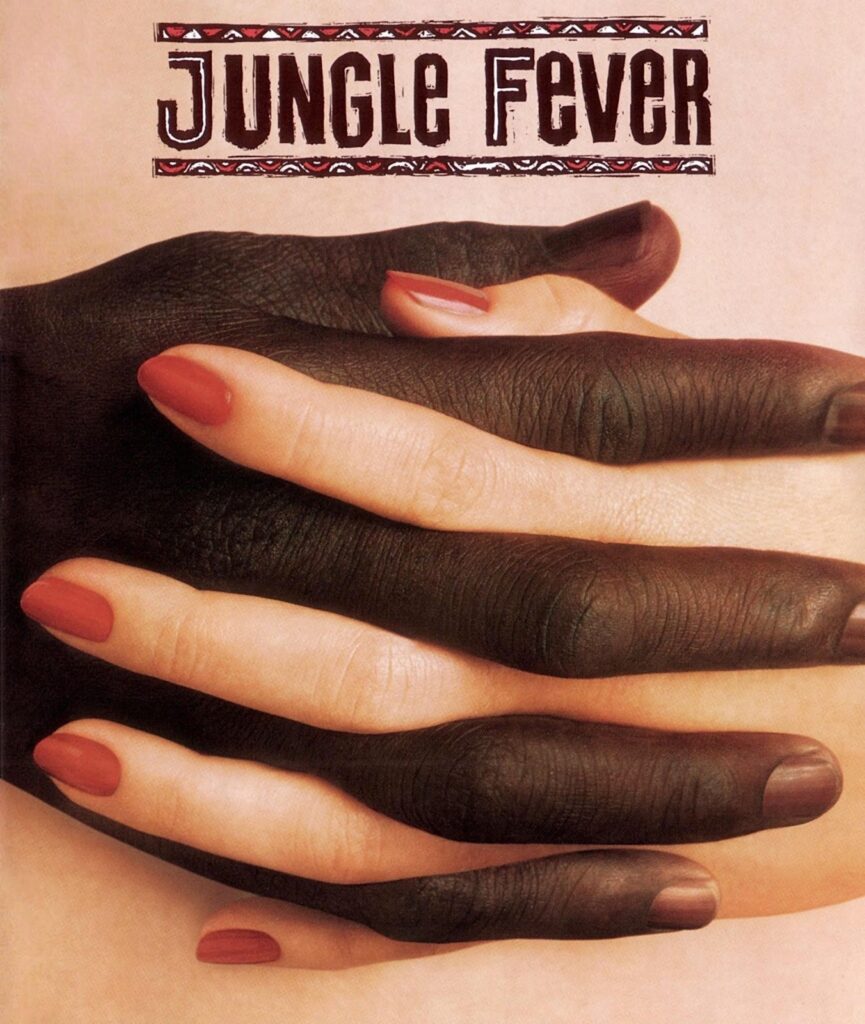
Anti-miscegenation laws had significant negative effects on the mental health of black women. These laws, which prohibited interracial marriages and relationships, contributed to a range of psychological issues:
1. Chronic Stress and Mental Health Disorders:
– Racial discrimination, including the enforcement of anti-miscegenation laws, acted as both chronic and acute stressors. This persistent stress negatively impacted the mental health of black women, leading to higher levels of psychological distress, depressive symptoms, anxiety, and lower life satisfaction[2][3][4]. The constant societal rejection and legal prohibitions created an environment of continuous stress and emotional strain.
2. Identity and Self-Perception:
– Anti-miscegenation laws reinforced negative stereotypes about black women, portraying them as inferior and hypersexual compared to white women. This societal perception could lead to internalized racism and a diminished sense of self-worth among black women[1][6]. The societal message that they were undesirable and inferior could severely impact their self-esteem and identity.
3. Social Isolation and Stigma:
– Black women in interracial relationships often faced social rejection and isolation from both black and white communities. This dual rejection could lead to feelings of loneliness and alienation, further exacerbating mental health issues[6][7]. The stigma associated with interracial relationships meant that black women had to navigate a complex social landscape, often without adequate support.
4. Emotional and Psychological Abuse:
– The legal and social prohibitions against interracial relationships often resulted in black women being subjected to emotional and psychological abuse. They were frequently seen as mere objects of sexual desire rather than as equal partners, which could lead to long-term emotional trauma[1][5]. The lack of legal protection and societal support made it difficult for black women to seek justice or support.
5. Impact on Family and Community Dynamics:
– The enforcement of anti-miscegenation laws disrupted family and community dynamics. Black women in interracial relationships often faced pressure and disapproval from their own families and communities, which could lead to strained relationships and additional emotional stress[6][7]. The fear of social ostracism and the potential impact on their children added another layer of psychological burden.
In summary, anti-miscegenation laws had severe psychological effects on black women, contributing to chronic stress, identity issues, social isolation, emotional abuse, and disrupted family dynamics. These laws not only reinforced racial and gender hierarchies but also inflicted deep emotional and psychological wounds on black women[1][2][3][4][5][6][7].
Citations:
[1] https://repository.library.georgetown.edu/handle/10822/1051098
[2] https://www.ncbi.nlm.nih.gov/pmc/articles/PMC8451383/
[3] https://www.ncbi.nlm.nih.gov/pmc/articles/PMC4580597/
[4] https://www.ncbi.nlm.nih.gov/pmc/articles/PMC4236835/
[5] https://sprc.org/news/were-looked-at-as-superhuman-how-racism-affects-black-womens-mental-health/
[6] https://nsuworks.nova.edu/cgi/viewcontent.cgi?article=1177&context=shss_dcar_etd
[7] https://en.wikipedia.org/wiki/Anti-miscegenation_laws_in_the_United_States
[8] https://www.hsph.harvard.edu/news/hsph-in-the-news/discrimination-black-womens-health/
[9] https://journals.sagepub.com/doi/10.1177/2158244012455179
[10] https://scholarlycommons.law.hofstra.edu/cgi/viewcontent.cgi?article=2608&context=hlr
[11] https://encyclopediaofarkansas.net/entries/anti-miscegenation-laws-3508/
What Role Did Socioeconomic Status Play In The Psychological Impact Of Anti-Miscegenation Laws On Black Women?
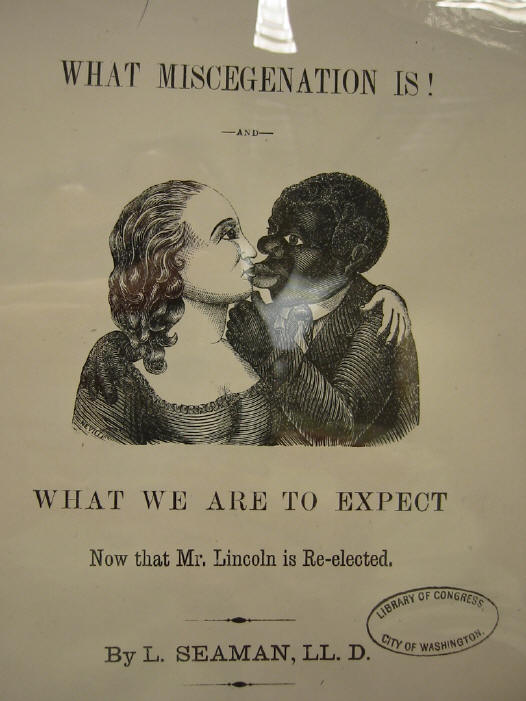
Socioeconomic status (SES) played a significant role in the psychological impact of anti-miscegenation laws on black women. Here are the key points based on the provided sources:
1. Increased Vulnerability to Discrimination:
– Research indicates that African Americans with lower SES are more vulnerable to the negative mental health effects of racial discrimination. This is due to fewer psychosocial resources, such as lower levels of mastery and social support, which are crucial for coping with discrimination[1]. Black women with lower SES would therefore be more susceptible to the psychological stress caused by anti-miscegenation laws.
2. Compounded Stressors:
– Black women with lower SES faced compounded stressors, including economic hardship and racial discrimination. The intersection of these stressors exacerbated their mental health issues, leading to higher levels of psychological distress, depressive symptoms, and anxiety[1][2]. The additional burden of anti-miscegenation laws, which restricted their personal relationships and reinforced their social marginalization, would have further intensified these mental health challenges.
3. Limited Access to Mental Health Resources:
– Lower SES often correlates with limited access to mental health resources and support systems. Black women in this socioeconomic bracket would have had fewer opportunities to seek professional help or community support to address the psychological impact of anti-miscegenation laws[1][2]. This lack of access would contribute to prolonged and untreated mental health issues.
4. Social Isolation and Stigma:
– Anti-miscegenation laws not only legally restricted interracial relationships but also socially stigmatized them. Black women from lower SES backgrounds, already facing social and economic marginalization, would experience heightened social isolation and stigma if involved in or desiring interracial relationships[3][4]. This social isolation could lead to feelings of loneliness and exacerbate mental health problems.
5. Internalized Racism and Identity Issues:
– The societal reinforcement of racial hierarchies through anti-miscegenation laws could lead to internalized racism and identity issues among black women, particularly those from lower SES backgrounds. The constant societal message of inferiority and undesirability could severely impact their self-esteem and sense of identity, leading to long-term psychological effects[3][4][5].
In summary, socioeconomic status significantly influenced the psychological impact of anti-miscegenation laws on black women. Those with lower SES faced greater vulnerability to discrimination, compounded stressors, limited access to mental health resources, social isolation, and internalized racism, all of which contributed to severe and prolonged mental health issues[1][2][3][4][5].
Citations:
[1] https://www.ncbi.nlm.nih.gov/pmc/articles/PMC4236835/
[2] https://www.ncbi.nlm.nih.gov/pmc/articles/PMC10808380/
[3] https://journals.sagepub.com/doi/10.1177/2158244012455179
[4] https://scholarlycommons.law.hofstra.edu/cgi/viewcontent.cgi?article=2608&context=hlr
[5] https://scholarworks.lib.csusb.edu/cgi/viewcontent.cgi?article=1284&context=history-in-the-making
[6] https://www.apa.org/monitor/2022/03/special-report-wrongs-future
RESOURCES:
- Miscegenation”: Making Race in America by Elise Lemire https://amzn.to/3XbaWz6
- Miscegenation The Theory of the Blending of the Races, Applied to the American White Man and Negro by David G. Croly https://amzn.to/3KAhD6d
- Birth of a White Nation by Dr. Jacqueline Battalora https://amzn.to/4cc8fS9

https://shockmetaphysics.gumroad.com/coffee
Brought To You Buy…
- FREE web series: Nothing is Wrong with Black People…Something Happened to Black People: https://bit.ly/3FJCsLo
- George Fraser’s PowerNetworking Conference https://t.ly/6N6it
- BlackTraumaGPT.com http://blacktraumagpt.com/
- MyGuardianDoc™ https://bit.ly/3TlgPaE – Your One-Stop for On-Demand Compassionate Medical Guidance, Urgent Care, Primary Care, and Virtual Second Opinions, all provided by licensed Medical Doctors.
Enjoy our content? Become a member of our Patreon https://www.patreon.com/revshock or support our 1st Frequency of Oneness Research Fund https://bit.ly/42lr54b
Socials:
SOLO: https://solo.to/revshock | BIO: https://t.ly/Ko_y_ | BLOG: https://t.ly/j6bh0 | PODCAST: https://t.ly/cB5GD | ENDORSEMENT: https://t.ly/jFErO | THREADS: https://t.ly/SoKkT | GRAM: https://t.ly/XsN8f | FB: https://t.ly/R3r9Y | TWITTER: https://t.ly/iJ-wy | LINKEDIN: https://t.ly/GZ0pe | TIKTOK: https://t.ly/zfp60
